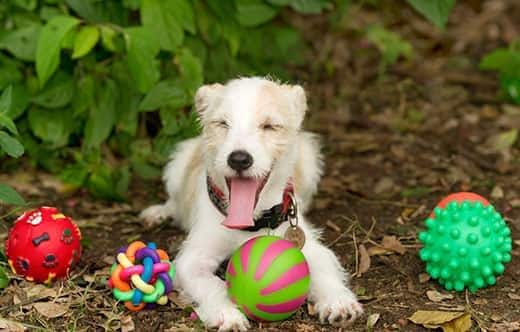
-
Find the right food for your petTake this quiz to see which food may be the best for your furry friend.Find the right food for your petTake this quiz to see which food may be the best for your furry friend.Health CategoryFeatured products
 Adult Small Bites Chicken & Barley Recipe Dog Food
Adult Small Bites Chicken & Barley Recipe Dog FoodSupports lean muscle for dogs who prefer smaller kibble
Shop Now Adult Oral Care Small & Mini Chicken, Rice & Barley Recipe Dog Food
Adult Oral Care Small & Mini Chicken, Rice & Barley Recipe Dog FoodClinically proven kibble technology to reduce plaque & tartar build-up, specially designed for small & mini dogs
Shop Now Adult 7+ Small Bites Chicken Meal, Barley & Rice Recipe Dog Food
Adult 7+ Small Bites Chicken Meal, Barley & Rice Recipe Dog FoodSupports energy level and beautiful coat in mature dogs who prefer smaller kibble
Shop NowFeatured products Adult Chicken & Spinach Casserole Cat Food
Adult Chicken & Spinach Casserole Cat FoodWith delicious chunks in a decadent gravy
Shop Now Adult 7+ Tender Tuna Dinner Cat Food
Adult 7+ Tender Tuna Dinner Cat FoodWith delicious chunks in a decadent gravy
Shop Now Sensitive Stomach & Skin Chicken & Beef Dinner
Sensitive Stomach & Skin Chicken & Beef DinnerGourmet daily nutrition, carefully made. Tasty chunks with chicken & beef in a decadent gravy. Supports digestive health, nourishes skin and promotes a lustrous fur.
Shop Now -
DogCat
- Cat Tips & Articles
-
Health Category
- Weight
- Skin & Food Sensitivities
- Urinary
- Digestive
- Kidney
- Dental
- Serious Illness
-
Life Stage
- Kitten Nutrition
- Adult Nutrition
Featured articles Pet Food Storage Tips
Pet Food Storage TipsWhere you store your cat and dog food can make a big difference in the quality and freshness once it is opened. Here are some common questions and recommendations for optimal storage for all of Hill’s dry and canned cat and dog food.
Read More Water
WaterWater is the most important nutrient of all and essential for life. Animals can lose almost all their fat and half their protein and still survive, but if they lose 15% of their water, it will mean death.
Read MoreHill's Australian Bushfire EffortsRead More -


If your dog is like most canine friends, they probably have a favorite toy that they constantly chew on. Maybe they carry it outside on walks or runs in the yard, rubbing it in dirt and whatever else is on the ground. Perhaps it's starting to emit a funky odor.
Sound familiar? Read on to learn how to clean dog toys so that they look (and smell) like new again.
Cleaning Dog Toys: Why It's Important
If you aren't feeling inspired to clean your dog's toys, get this: Dog toys carry everything from yeast to mold to staph bacteria. They're among the top 10 "germiest" home items, according to NSF International. And, because dogs primarily use their mouths to play with toys, they ingest any bacteria their toys collect. If your dog is a big smoocher, they could be sharing that bacteria with you.


Tasty Tips
How to Clean Dog Toys
There's no question that leaving your dog's germy toys to fester can be a household hazard. But if you aren't careful, cleaning dog toys can actually bring more hazards into the mix. According to the American Kennel Club, "bleach, phenols, products with high chemical concentrations and some detergents can cause vomiting, diarrhea, and severe chemical burns."
Fortunately, there are many pet-safe cleaning solutions out there. Your best bet is to check with your veterinarian or a pet supply expert to confirm that a cleaner is safe before using it. However, if you're feeling crafty, you can also whip up a do-it-yourself, all-natural solution of one-half water, one-half white vinegar. You can use this mixture, or any dog-safe cleaning product, to scrub your dog's toys by hand or to wash them in a dishwasher or laundry machine.
Cleaning Plush Toys
When cleaning plush toys, be sure to either use a pet-safe detergent or avoid using detergent entirely. You can also wash soft toys by hand using the half-water, half-vinegar solution. Afterward, either air-dry the toys or pop them into the dryer (but don't use dryer sheets).
To avoid the possibility of mold, make sure plush toys are completely dry before either returning them to your pet or storing them.
Cleaning Chew Toys
When cleaning chew toys, be sure to tape over any holes to prevent cleaning products from getting inside them. Note that, with certain chew toys, there may come a point when the object is simply too worn for your dog to safely use it. To prevent your dog from accidentally ingesting plastic or fabric, get rid of a toy as soon as it starts to tear or develop holes.
Consider dividing your dog's favorite toys into two groups and washing each group on a regular basis. For example, you could wash the toys in group No. 1 on the first and third weeks of the month and toys in group No. 2 on the second and fourth weeks. This way, your dog always has a fresh, beloved toy to play with.
Cleaning dog toys is critical to your and your dog's health. After playing the day away, just make sure you devote a little time to cleaning up your pup's mess. You'll both be better off.


Erin Ollila believes in the power of words and how a message can inform—and even transform—its intended audience. Her writing can be found all over the internet and in print, and includes interviews, ghostwriting, blog posts, and creative nonfiction. Erin is a geek for SEO and all things social media. She graduated from Fairfield University with an M.F.A. in Creative Writing. Reach out to her on Twitter @ReinventingErin or learn more about her at http://erinollila.com.
Related products

Supports energy level and beautiful coat in mature dogs who prefer smaller kibble

Supports healthy joints, lean muscle, and beautiful coat for large breed dogs

Supports lean muscle for dogs who prefer smaller kibble

Clinically proven kibble technology to reduce plaque & tartar build-up, specially designed for small & mini dogs
Related articles

As small and toy breed dogs age, their nutritional needs change.

Selecting the right food for your puppy is a key to quality nutrition and a long, healthy life., Learn more about how to select the right puppy food.

Learn how today's wet dog food blends have gotten a face lift, and how you'll provide your dog the nutrition he needs in the form he loves.

Extra pounds can cause problems for your dog's overall health. Learn the signs that your dog might be overweight, and what you can do to manage its weight.

Put your dog on a diet without them knowing
Our low calorie formula helps you control your dog's weight. It's packed with high-quality protein for building lean muscles, and made with purposeful ingredients for a flavorful, nutritious meal. Clinically proven antioxidants, Vitamin C+E, help promote a healthy immune system.
Put your dog on a diet without them knowing
Our low calorie formula helps you control your dog's weight. It's packed with high-quality protein for building lean muscles, and made with purposeful ingredients for a flavorful, nutritious meal. Clinically proven antioxidants, Vitamin C+E, help promote a healthy immune system.


